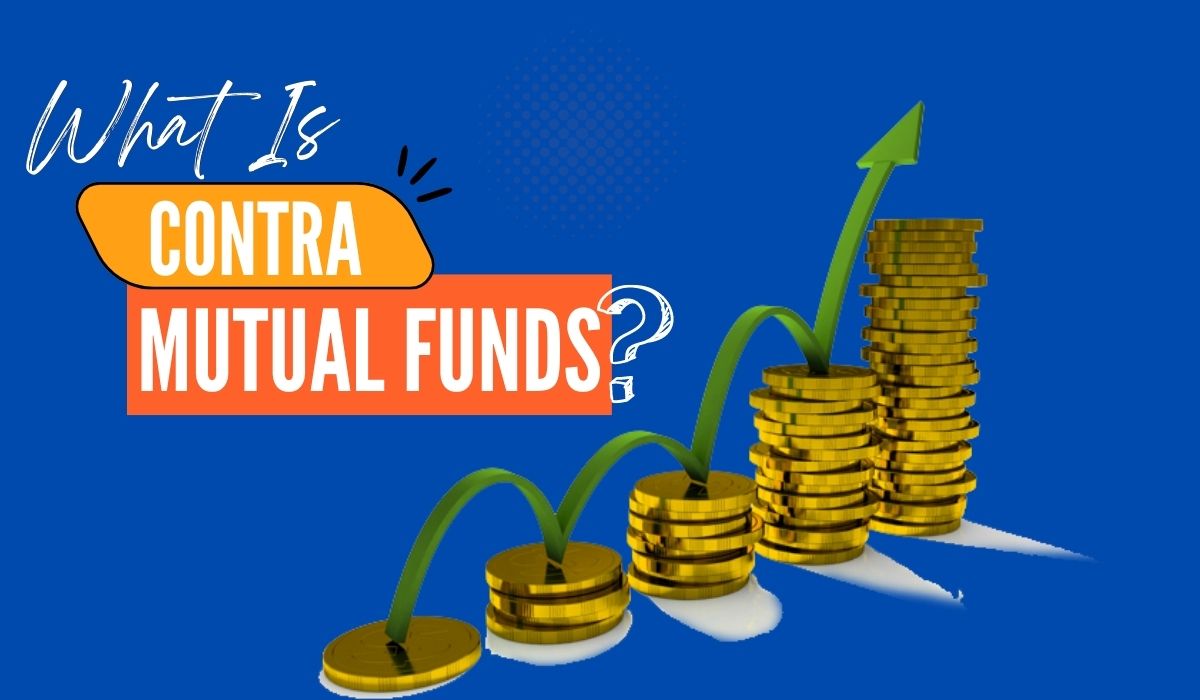When is a good time to invest in equity mutual fund is one of the most often discussed topics? While solutions to this issue are easily accessible, a less often addressed topic is when is a good time to leave your Mutual Fund assets. This subject is often raised when markets achieve all-time highs or experience a severe fall. Contra funds invest in equities and sectors unconventionally. Read on to learn what are contra funds and when to enter & exit contra fund.
What exactly is a Contra Fund?
The contrarian method, as the name implies, includes making investing choices in opposition to the broader market is known as “Contra Fund”. For example, while everyone else is negative on markets, the contrarian will become optimistic, and vice versa. Similarly, counter funds attempt to profit by going against the market herd by seizing investing opportunities that arise when the market reverts as predicted.
Contra mutual funds primarily invest in fundamentally sound firms underappreciated by most investors and trade at a discount. They believe in holding such stocks for a long time until the herd prefers them, increasing the share price. They do not, however, sell these out-of-favour stocks just because they have become appealing. Instead, they wait until values become too high and unreasonable, company fundamentals degrade, or an excellent investment opportunity presents itself. These funds are not influenced by market capitalisation and invest across the board.
How Does Investing in Contra Funds Benefit an Investor?
A contra fund manager's options for such counter equities may be restricted. On the other hand, investors perceive certain significant advantages to investing in such counter funds.
1. Contra funds take a contrarian stance, and if effectively calibrated, such ideas may provide investors with above-market returns. Of course, there is always danger, but the rewards may be worth it.
2. Contra funds invest in firms that most analysts and investors miss. As a result, the research emphasis is narrow, and the influence of institutional transactions on this counter is constrained.
3. Contra funds often acquire equities when they are underperforming. Hence the price is typically low in such times. As a result, investors in Contra mutual funds benefit indirectly from attractive discounts on counter equities.
4. It has been noticed that during market crashes or sustained market declines, high beta equities tend to suffer the most. In such instances, counter funds tend to outperform other types of funds in value retention.
5. Most contrarian stocks have a lot of pent-up potentials, but this value isn't represented in the stock price because of its apparent issues. When these concerns are resolved, the stock usually rises as it tries to catch up.
When should you enter contra funds?
A Contra Fund does not follow the herd or place bets on current market favourites. It invests in undervalued stocks. As a result, investors with decent risk tolerance and a time horizon of more than 5
years might consider investing in counter funds. When investing in contra funds keep the following considerations in mind.
1. Global reach:
With globalization affecting every part of our lives, multinational firms' footprints may be seen in our daily lives via brands such as Google, Amazon, IBM, and Reebok, among others. Most of these businesses are located in the United States, yet they have a worldwide presence.
2. When markets do not move in lockstep:
The fact that global markets are not directly connected is best appreciated by examining the performance of various market indexes across time. This is evident from the fact that domestic fund schemes seldom maintain top performance over market cycles and time. The same is true for the fund category since the average performance of various fund types varies with market cycles.
3. Low correlation:
A poor investment correlation indicates that various asset classes have not fared similarly. It is advantageous when investing across regions because as investments in one location improve, returns on other investments drop less or even rise.
When should you exit contra funds?
Even within your target period, there may be occasions when you must quit investments. In such cases, leaving the investment is recommended only when:
1. Fund manager replacement:
Before investing in a fund, fund managers' experience and skills are assessed. The manager's ability to handle the funds under severe events accounts for most of the fund's success. As a result, a change in fund management may significantly influence fund performance. There is no reason to be concerned as long as the fund's investing aim remains unchanged. Keep a watch on his performance to evaluate whether his investing selections produce positive results.
2. Changes to the fund's strategy:
Investors only invest in funds if their investment objectives are compatible with the funds. As a result, any change in the fund's strategy implies that you should reevaluate your investment in the fund.
3. The fund's underperformance:
Mutual funds are market-linked securities, which means they are volatile. Any changes in the stock market will have an impact on mutual fund performance. Short-term market swings might be deceiving. And basing your choice on this is not a smart idea. Consistent underperformance for more than 18 months is a solid sign that you should consider withdrawing from the fund to avoid additional losses.
If not for the reasons stated above, it is always recommended to retain your Contra Fund for extended periods. Always have an exit strategy for your assets available, in addition to an investing plan. When entering or departing the market at the right moment, it's tough to strike the bullseye, but having a strategy will always come in handy.

 Continue with Google
Continue with Google
 Continue with Yahoo
Continue with Yahoo
